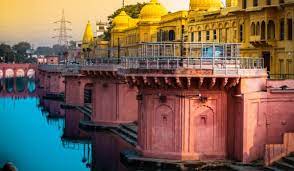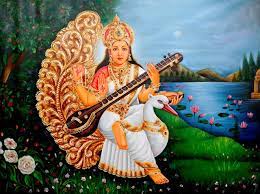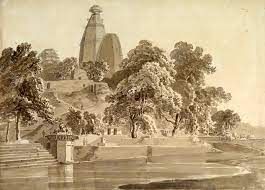
The significance of the holy city of Ayodhya
Ayodhya, the holy city located in the state of Uttar Pradesh in India, has been the center of religious, cultural, and political significance for centuries. The city is known for its rich history, architecture, and mythology, and has been the focus of numerous controversies and debates. In this blog, we will explore the significance of the holy city of Ayodhya, its history, and the controversies associated with it.
History of Ayodhya:
Ayodhya is one of the oldest cities in India and has a rich cultural and historical heritage. According to Hindu mythology, Ayodhya was the capital of the ancient kingdom of Kosala and was ruled by the legendary king, Lord Rama. Lord Rama is believed to be the seventh incarnation of Lord Vishnu, and his story is told in the epic Ramayana.

Ayodhya has also been an important center for Buddhism and Jainism. It was the birthplace of Jain Tirthankar, Rishabhdev, and was visited by Lord Buddha during his lifetime. The city has many ancient temples, palaces, and other historical sites, which attract tourists and pilgrims from all over the world.
The Significance of Ayodhya:
- The Birthplace of Lord Rama:
Ayodhya is most well-known for being the birthplace of Lord Rama, one of the most revered deities in Hinduism. According to the Ramayana, Lord Rama was born in Ayodhya in the Treta Yuga, which is believed to have occurred millions of years ago. Lord Rama is revered for his righteousness, strength, and devotion, and his story continues to inspire people all over the world.
- Ram Janmabhoomi:
Ayodhya is also known for the Ram Janmabhoomi, which is believed to be the site where Lord Rama was born. The site has been the subject of much controversy and legal battles, as many Hindu groups believe that a temple dedicated to Lord Rama once stood there before it was destroyed by Muslim invaders in the 16th century. The controversy surrounding the site has been ongoing for several decades and has led to communal tensions and violence in the past.

- Pilgrimage Destination:
Ayodhya is an important pilgrimage destination for Hindus, Buddhists, and Jains. The city has many ancient temples, including the Hanuman Garhi Temple, the Kanak Bhawan Temple, and the Nageshwarnath Temple. The city also has a number of ghats along the river Sarayu, where devotees perform religious rituals and take holy dips.
- Cultural Significance:
Ayodhya has been an important center of culture and arts for centuries. The city has a rich tradition of music, dance, and literature, and has produced many renowned artists and scholars over the years. The city is also known for its unique cuisine, which is a blend of Awadhi, Bhojpuri, and Mughlai styles.
- Political Significance:
Ayodhya has also been the center of many political controversies over the years. The dispute over the Ram Janmabhoomi site has been a contentious issue between Hindus and Muslims for several decades, and has led to many riots and communal tensions. In 2019, the Indian Supreme Court ruled in favor of Hindus and allowed the construction of a temple at the disputed site.

In conclusion, the significance of the holy city of Ayodhya is deeply rooted in its rich history, mythology, and cultural heritage. The birthplace of Lord Rama, Ayodhya has been an important pilgrimage destination for Hindus, Buddhists, and Jains for centuries. The city is also known for its unique cuisine, music, and literature, and has produced many renowned artists and scholars over the years.
However, Ayodhya has also been the center of many political controversies and communal tensions, particularly surrounding the Ram Janmabhoomi site. Despite these controversies, the city continues to hold a special place in the hearts of millions of people, and its significance as a symbol of religious and cultural harmony in India cannot be overstated.
As Ayodhya moves forward with the construction of a temple at the disputed site, it is important to remember the city's rich history and cultural significance, and to work towards building a more peaceful and inclusive future for all who call Ayodhya their home.
Author
Darshita Nautiyal
(The images used in this podcast are not owned by Anime Devta, they are just to help the readers)

